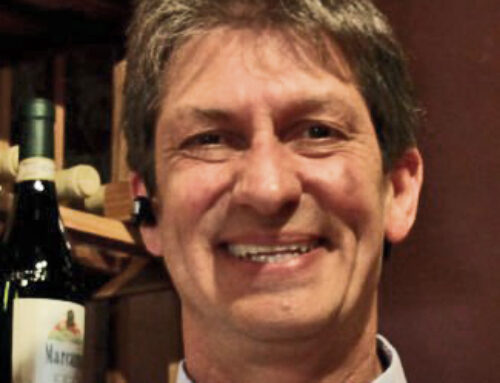Sada’s donation provided a legacy for generations
Published in the December 24, 2014 – January 6, 2014 issue of Morgan Hill Life
By Staff Report
Nature lovers from throughout the Bay Area come to Morgan Hill and journey along East Dunne Avenue a few miles through a winding Diablo Mountain range road to discover paradise. They come to Henry W. Coe State Park, an 87,000-acre natural wilderness which got its start in 1953 when Henry’s daughter, Sada Sutcliffe Coe, gave a gift of a 13,000-acre ranch overlooking the South Valley to the people of Santa Clara County to create a park named in honor of her father.
Dec. 7 would have been Sada’s 104th birthday, and the day was celebrated with an afternoon hike led by Carolyn Straub, who edited an anthology of Sada’s writings, and Morgan Hill businessman Mike Monroe, who often leads “Take a Hike with Mike” jaunts throughout the region.
Sada spent much of her early years on the family’s ranch. She learned to ride horses and helped her father tend the land, a “woman in a man’s world,” Straub said. Her brother inherited the San Felipe Ranch and Pine Ridge Camp upon Henry W. Coe Jr.’s death in 1943. Her father thought that “ranching would be hard for a woman.” Her brother promptly sold the Pine Ridge Camp in 1947.
“Sada quickly bought it back in 1949, showing she could be feisty and fiercely independent,” Straub said.
Straub became a state park volunteer in 2007 and observed the visitors center giftshop at the park had no books about Sada. She saw this as an oversight. The anthology was published in 2010 on the centennial anniversary of Sada’s birth. Sada had died Nov. 2, 1979 and is buried in Hope Cemetery in Morgan Hill.
After receiving the land from Sada, Santa Clara County managed Henry Coe County Park for five years but did not have the resources to upkeep it properly and so donated it to the state of California. Henry W. Coe State Park over time expanded as ranch properties were purchased, stretching east into the Oristimba Wilderness and south to Gilroy Hot Springs.
“It is surprising that some residents of Santa Clara County say they have never visited, or heard of, Henry W. Coe State Park,” Straub said. “There are lots of reasons to visit Henry W. Coe State Park. Hiking and walking are intensely healthy. The quiet of the atmosphere is soothing. There are wildlife surprises to encounter. Though you can’t drive through the park, you can backpack, a kind of ‘sense-around’ experience.”
Everyone should experience the intense quiet and openness of Henry Coe Park, Monroe said.
“When we slow down and realize the importance of nature and beauty in our lives, then we make decisions that incorporate the need for wildness and fosters a worldview that is more than just about us,” he said. “Sada was right — the peace our souls are looking for is right here in our backyard at Coe Park. The (Dec. 7) hike is the most fitting way I know to celebrate Sada’s birthday and show our gratitude for her gift.”
Sada was not pleased when the state of California decided to enlarge Coe State Park by purchasing adjacent ranch properties from owners who decided to quit the ranching business, Monroe said.
“My impression is that she was distressed at the loss of a lifestyle that had been so deeply rooted within her,” he said. “Perhaps she realized the strenuous ranching life was becoming less and less attractive. I believe, though, that Sada would have observed the growth of the Bay Area and California with alarm because of the pace and noise of our hurried lives.”
Sada’s participation in the development of the park named after her father provided a legacy of protecting wilderness land in the Bay Area, a vision shared by many people who treasure the region’s open spaces and wildlife habitats, Monroe said. For example, the Mt. Hamilton Project outlined by the Nature Conservancy intends to protect nearly a million acres of relatively untouched landscapes in our Central Coast ranges.
“Henry Coe Park was the starting point and the anchor for this unfolding effort,” he said. “Sada’s donation 61 years ago showed tremendous foresight and recognition of our need for wild lands. She would have been at peace knowing how things turned out.”







